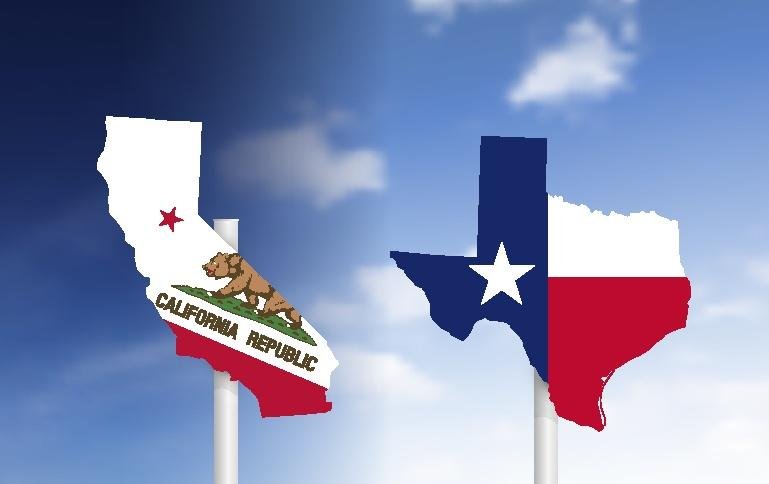A seismic shift is occurring in the corporate world as more companies announce plans to relocate from blue states to more business-friendly jurisdictions like Texas. Recently, Elon Musk revealed that he would be moving the headquarters of two of his companies, X and SpaceX, from California to Texas, citing a controversial California law as the final straw. However, the underlying reasons for this ongoing migration go beyond one law, with high living costs and operating costs in select metro areas prompting companies to seek greener pastures elsewhere.
According to commercial real estate firm CBRE, a total of 465 headquarters have moved since 2018, with Texas welcoming the most relocations at 209. California has seen the departure of many companies, with 79 leaving the Bay Area, 50 departing from Los Angeles, and 21 moving away from New York City. Between 2019 and 2022, California lost nearly $80 billion in tax revenue as residents fled high living costs and burdensome regulations, while Texas gained $31 billion and Florida gained $116 billion in the same period.
San Francisco’s office vacancy rate has nearly doubled from 17% in March 2021 to 32% today, surpassing the vacancy rates in other impacted cities such as Los Angeles, Seattle, and New York. In contrast to California, Texas has a relatively low cost of living, low energy costs, and no personal or corporate income tax, making it an attractive destination for businesses. Texas has consistently been ranked as the top state for business by Chief Executive’s survey since 2001.
Elon Musk’s decision to move his companies out of California is not just a business choice but also a political one. Musk, along with other prominent Silicon Valley figures, has aligned himself with the conservative movement and has endorsed former President Donald Trump. Trump, who has embraced cutting-edge tech like Bitcoin, artificial intelligence, and non-fungible tokens, is the first major presidential candidate to accept crypto donations and could be looking to reshape AI policy if reelected.
J.D. Vance, a rising figure in U.S. politics and a former venture capitalist, has been able to bridge the gap between the Trump campaign and wealthy Silicon Valley donors. Vance, who is an outspoken critic of Big Tech and has called for the breakup of Google, could play a significant role in the Trump administration’s AI policy if Trump wins reelection. Allies of Trump have reportedly drafted an AI executive order aimed at boosting military technology and reducing AI regulations, signaling a potential shift in AI policy under a future Trump administration.
The U.S. remains the world’s largest hub for venture capital investment, with close to $92 billion raised in the first half of this year. Six of the world’s top 10 tech hubs by VC raised are located in the U.S., with the Bay Area leading the list. As more companies and influential figures like Musk, Marc Andreessen, Ben Horowitz, and Vance make moves to reshape the business and political landscape, the battleground for innovation and economic growth in the U.S. is shifting, with Texas emerging as a key player in this transition.

